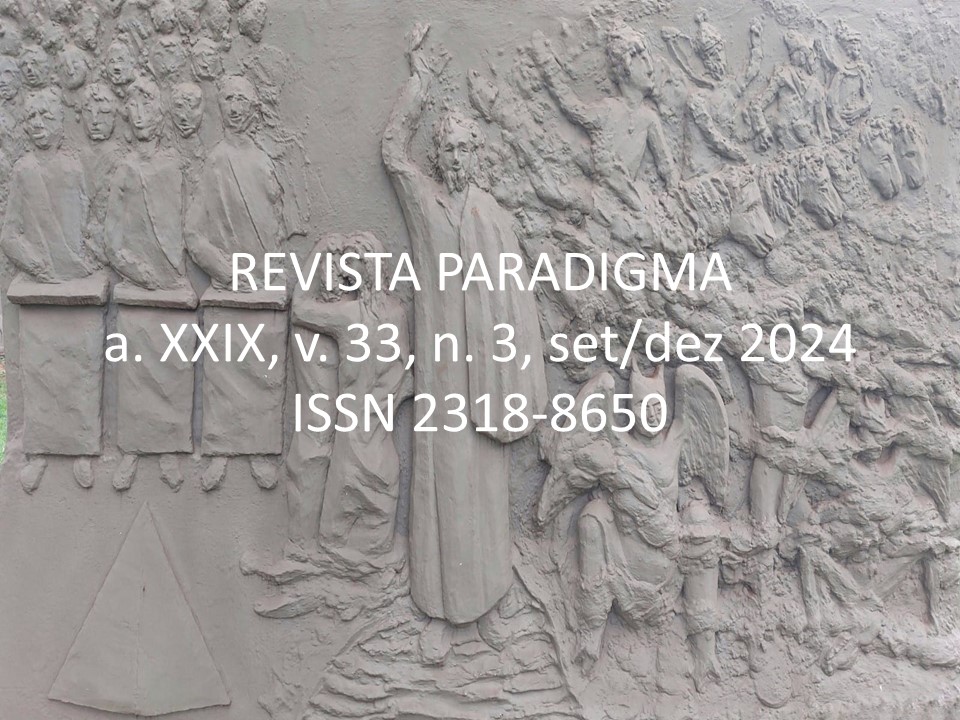ANÁLISE DO USO DA INTELIGÊNCIA ARTIFICIAL – IA, COMO PROPRIEDADE INTELECTUAL, E AS CONSEQUÊNCIAS NA ESFERA JURÍDICA CÍVEL BRASILEIRA
DOI:
https://doi.org/10.55839/2318-8650RevParRPv33n3pa130-153Palavras-chave:
Inteligência Artificial, inovação, propriedade intelectual, responsabilidade civilResumo
A Inteligência Artificial “é um ramo de pesquisa da ciência da computação que busca, através de símbolos computacionais, construir mecanismos e/ou dispositivos que simulem a capacidade do ser humano de pensar, resolver problemas, ou seja, de ser inteligente” (SANTOS, 2021). No Instituto Nacional da Propriedade Intelectual – INPI, a IA é analisada sob a ótica de Programa de computador, definido na lei 9.609 de 19 de fevereiro de 1998. Desse modo, o objetivo principal desse estudo é analisar as consequências jurídicas trazidas pelo uso da Inteligência Artificial no direito civil, e como a legislação brasileira tem tutelado o cidadão comum, frente a possíveis conflitos envolvendo essa tecnologia, tendo como premissa a palestra proferida pelo Ministro Luiz Fux, do Supremo Tribunal Federal, em setembro de 2019, no evento “Novas Tendências do Direito Comum – Inteligência Artificial, Análise Econômica do Direito e Processo Civil”, em Londres – Inglaterra. Assim, pretende-se apontar as prováveis lacunas cíveis na legislação brasileira envolvendo questões ligadas ao uso da Inteligência Artificial, como Propriedade Intelectual, conhecendo as diversas práticas e formas de proteção relacionadas ao uso dessa inovação, examinar as várias maneiras de valer-se dela em outros países e compreender de que forma a IA impacta na sociedade como um todo. Para tal, será utilizada a bibliografia nacional e internacional disponível, bem como artigos e revistas de tecnologia e jurídicas que relatem sobre o tema proposto. O método empregado será o indutivo, partindo da palestra proferida pelo Ministro do STF, Luiz Fux. O presente trabalho justifica-se em face dos prováveis reflexos que o uso da IA pode gerar no âmbito judicial cível, quer seja na proteção da propriedade intelectual, quer seja na tutela dos direitos do cidadão comum, exposto a possível evento danoso, em consequência do uso da Inteligência Artificial por terceiros. O ordenamento jurídico protege a Inteligência Artificial como Propriedade Intelectual, deixando o cidadão comum exposto, sem salvaguarda em relação à possibilidade de ser vítima de eventos danosos provocados pela tecnologia. Ainda não há um consenso jurídico quanto a indispensabilidade de se criar normas ou institutos específicos para tratar sobre questões relativas a IA. Vários são os questionamentos, mas pouco se tem de literatura para auxiliar nos deslinde de tal problemática.
Downloads
Publicado
Como Citar
Edição
Seção
Licença
Copyright (c) 2025 Dane Tadeu Cestarolli, Elidia Maria Guerra, Isabela Graciana de Sousa Canhoni

Este trabalho está licenciado sob uma licença Creative Commons Attribution-NonCommercial 4.0 International License.
A submissão de artigos à REVISTA PARADIGMA está vinculada à licença da Creative Commons CC BY-NC 4.0 internacional. Através desta licença, o autor mantém seus direitos autorais, mas permite, para fins não comerciais, que as pessoas possam copiar e distribuir o seu trabalho, reservando os respectivos créditos, nas condições especificadas.
Ao submeter artigos à Revista Paradigma o autor já autoriza sua publicação em caso de aprovação após o devido processo de avaliação, ciente da política de acesso livre do periódico. A submissão, avaliação, aprovação e publicação dos artigos é gratuita, não havendo cobrança de nenhum tipo de taxa.
O autor declara ciência de que serão publicadas todas as informações consignadas na submissão, incluindo nome, afiliação, titulação e endereço eletrônico.
Da mesma forma, o interessado, ao submeter o trabalho no site da revista, DECLARA QUE É AUTOR (A) DO TRABALHO, BEM COMO DO VÍNCULO DAS DEMAIS PESSOAS TAMBÉM APONTADAS COMO AUTORAS, assumindo inteira responsabilidade por tais declarações.


